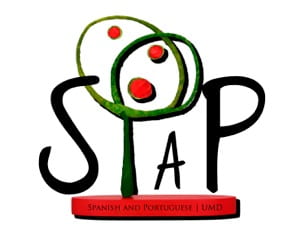“La loca jornada hacia José Emilio” Elena Poniatowska
La inesperada muerte de José Emilio Pacheco ha llenado de tristeza al mundo de las letras. Junto con sus familiares y amigos, sus lectores lloran su ausencia y hacen encomio de su labor invaluable por la palabra, que cultivó y veneró como pocos. Elena Poniatowska, Vicente Quirarte e Ignacio Solares resaltan la vida y la obra de quien siempre será un autor indispensable de la literatura hispanoamericana.
5:30. 18 de diciembre. El periférico atestado, la cita es a las seis, media hora antes de que llegue el Presidente a entregar los premios nacionales de arte, literatura, ciencia y tecnología, 1992. Mula Monsiváis, me dijo que iríamos juntos, seguro se hizo pato. Hoy fue un día gris, con 300 puntos de Imeca. A ver cómo se presenta la noche. Mientras tanto, todos vamos a vuelta de rueda. Tengo que salir en Constituyentes, creo, o en Los Pinos. ¿Regalarán pinos en Los Pinos? En 1957, José Emilio Pacheco y Carlos Monsiváis caminaban por la avenida Juárez, jovencitos, torpes criaturitas delgadísimas, tímidos, no sabían manejar, no tenían coche. En 1992 tampoco tienen. No manejan. Toman taxis. Entonces avanzaban pegándose a la pared, y si alguien los saludaba rascaban el suelo como becerros con sus pezuñitas. “A ver si, con un poco de suerte, vemos a José Gorostiza salir de Relaciones Exteriores”. El edificio porfiriano en Paseo de la Reforma y en el cruce de Bucareli, contaba con solo cruzar la avenida un Kikos y Octavio Paz invitaba a Augusto Lunel, hambriento poeta peruano a que se tomara un café con leche en vaso con un cuerno o una banderilla o una flauta o una oreja o una concha o lo que le apeteciera. Accesible, Paz abrazaba a los poetas, al Caballito (Carlos IV) sobre el que se montaban los papeleritos y a su ciudad que anunciaba que íbamos al siglo XXI y todavía nos hacía mucha falta la poesía. “Me dio la mano”, “me va a leer”, “dice que sí soy bueno”. “Mañana vamos a tomar café”. “El sábado nos citó Alfonso Reyes, no puedo creerlo”. “Ojalá y no caiga Pita Amor porque esa acapara toda la atención”. “Yo preferiría visitar a José Vasconcelos”. “No, no, la cita es con don Alfonso”. “¿Le llevaste tu comentario a Elías Nandino a Estaciones?”. En esa época, ambos comenzaron a formar su biblioteca, uno en la calle de Reynosa, otro en la de San Simón, ambas muy desordenadas, pero José Emilio nunca sospechó lo entrañable que me resultaba el desorden de su biblioteca y el gusto que me daba pasar entre torres de Babel de libros apilados en columnas que solo él reconocía.

José Emilio Pacheco
©Angélica Martínez/Wikicommons
It’s MOOAs, Not MOOCs, That Will Transform Higher Education-The Conversation-The Chronicle of Higher Education
It’s MOOAs, Not MOOCs, That Will Transform Higher Education
March 25, 2013, 1:00 pm
The future is upon us. It is time to hyper-monetize professors’ teaching labor—oh wait, I mean open up education to all, for free—and create Massive Open Online Courses (MOOCs). As my colleague Jason Mittell wrote here at The Chronicle,
MOOC mania has gained momentum … because it entails opening up the previously noncommercial realm of teaching, at both public and nonprofit private institutions, to venture capitalists and start-ups looking to build company value.
According to one of many pro-MOOC op-eds by Thomas Friedman in The New York Times,
the MOOCs revolution, which will go through many growing pains, is here and is real. … Today’s traditional university has [much] in common with General Motors of the 1960s, just before Toyota used a technology breakthrough to come from nowhere and topple G.M.
Since Friedman is honest enough to use corporations as the comparison for today’s universities, let’s look where we might really use technologies to cut costs and make the universities leaner, more profit-producing machines: the administration.
Study after study has shown that the people at the top—the deans and vice-presidents and other Grand Poobahs of bureaucratic reproduction—have grown far faster than faculty in the past couple of decades. And their salaries are far higher, over all, than those of professors. As a study from the conservative Goldwater Institute pointed out:
Between 1993 and 2007, the number of full-time administrators per 100 students at America’s leading universities grew by 39 percent, while the number of employees engaged in teaching, research, or service only grew by 18 percent. Inflation-adjusted spending on administration per student grew by 61 percent during the same period, while instructional spending per student rose 39 percent.
So if we could find a way to put administration online, to create Massive Online Open Administrations or MOOAs, we could really cut some fat and reap some serious rewards.
